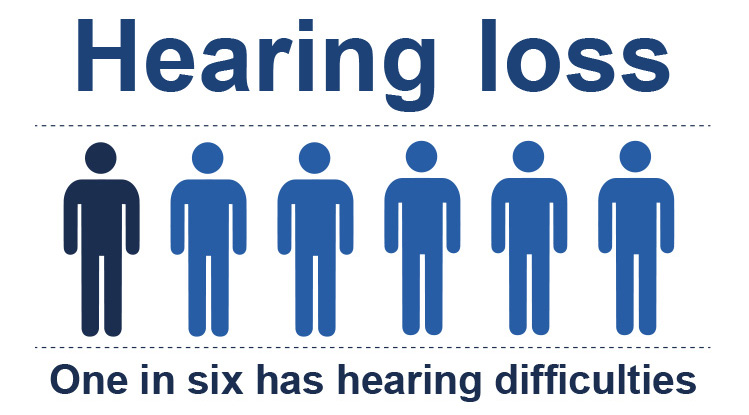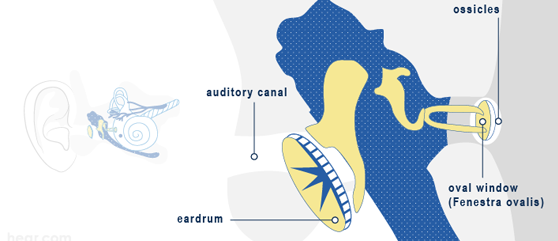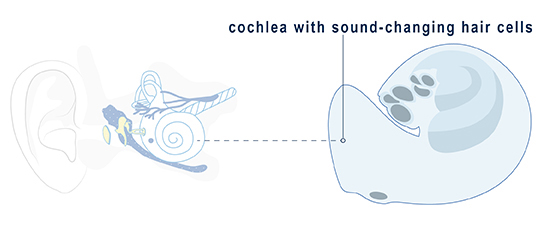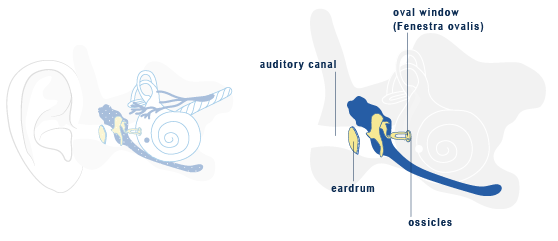Types of conductive hearing loss include congenital absence of ear canal or failure of the ear canal to be open at birth, congenital absence, malformation, or dysfunction of the middle ear structures, all of which may possibly be surgically corrected. If these are not amenable to successful surgical correction, then the hearing alternatively may be improved with amplification with a bone conduction hearing aid, or a surgically implanted device (for example, the BAHA), or a conventional hearing aid, depending on the status of the hearing nerve.












